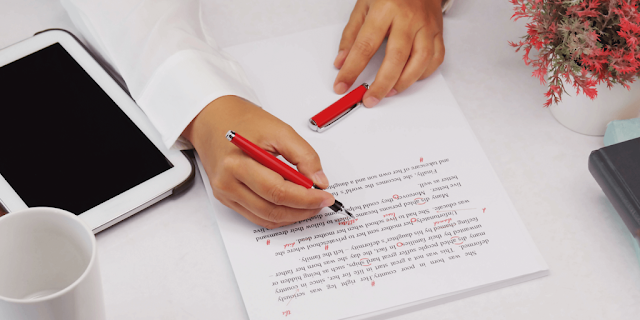It may seem like a simple challenge. You have already covered the tricky part. Unfortunately, that is not the case. Many master's and doctoral candidates are overwhelmed by the editorial stage. There's nothing worse than delivering a project you're working on, but you only discover that it's full of typos, spelling mistakes and grammatical errors.
Proofreading has the task of cleaning up the text from spelling, grammatical and syntactic errors. It guarantees a typo-free and linguistically correct publication . The service is aimed at authors who want to self-publish a text already edited previously or present to publishers a clean work on which it is still possible to work from a structural point of view. The service is also aimed at publishing houses that need a further rereading performed by a different editor than the one who dealt with the novel to avoid the presence of textual errors.
Fortunately, there are tactics you can use to make it easier to fix. Try these 9 fix techniques and take your typing error before your readers.
A definitive step-by-step guide for editing treatises
Your first instinct after completing your dissertation may be: I need to confirm this immediately and submit it as soon as possible. "It's not that fast. Remember that you're so obsessed with this content that you can't see it from an unbiased perspective.
You can take a break of at least a few days (give it a week if possible). Be busy with your hobbies, take a little air and don't open the document.
Edit first and fix later
There are essential differences between editing and modifying.
The editing phase improves the overall quality of logical flow, expression, language usage, and writing. You can remove unwanted sentences and paragraphs and add information as needed to improve your dissertation's overall readability.
Proofreading is also an essential aspect of the treatise completion process, but it is easier than editing. Once you've improved your content's meaning and style during the editing phase, you can move on to fixing grammar, punctuation, spelling, and other language errors. You can also take the help of Proofreading and editing service.
You cannot remove human elements from the editing process.
Many PhD candidates make serious mistakes. They are highly dependent on the spelling and grammatical characteristics of the word processor. If you want to make sure your content is okay, use automated tools such as Grammarly and Hemingway Editor to identify spelling and grammatical errors. It is undeniable that these tools effectively recognise fundamental flaws, but they cannot be trusted. You cannot replace the actual publisher.
Format reference
If he was smart enough, he took care of the references at the time of writing. If he forgets to keep track of the information he used from different sources, he will have difficulty remembering where he got the idea. Let's say you're smart and take notes about references at the time of writing. Otherwise, you will need to professional Proofreading and editing service to double-check all resources to find the help you used in your dissertation.
In any case, don't forget to format the reference according to the citation style you are using. If you want to complete a clean and perfect treatise project, follow the guidelines for your specific citation criteria.






